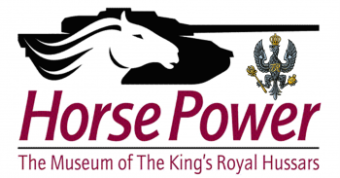New Acquisition - Cpl Harry Wyles & Hitler's Stationery
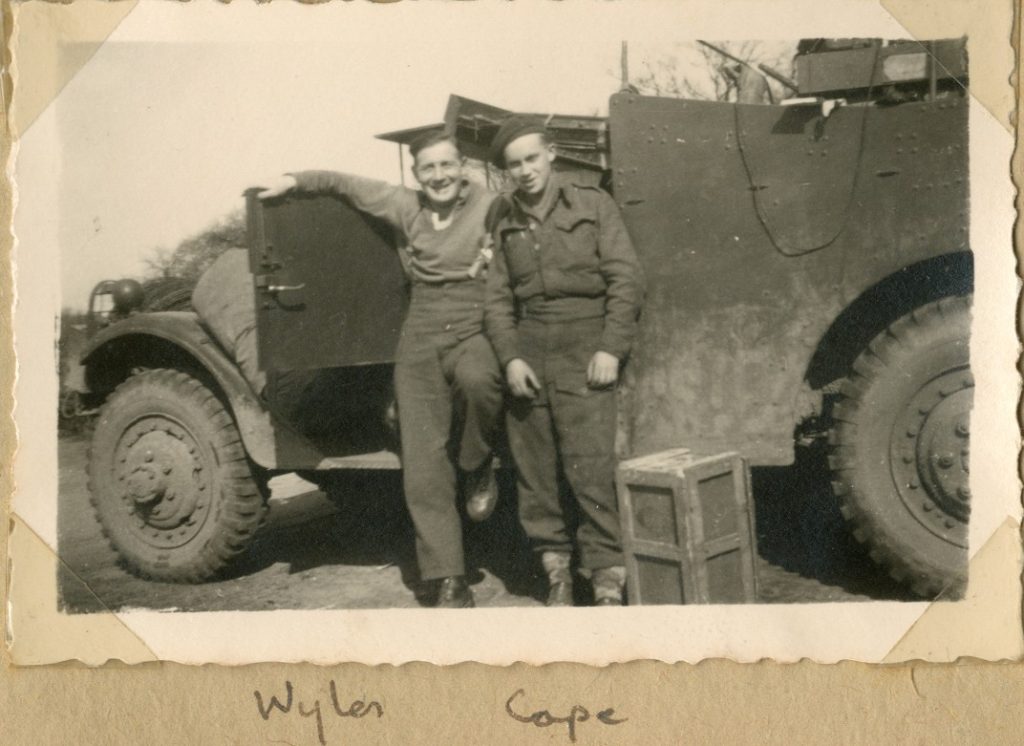
This month we want to highlight a fascinating new acquisition for the Regimental Archives. The following letter, written by Cpl Harry Wyles, has been kindly donated to us by his daughter, Joan. Written in July 1945, immediately following the 11th Hussars’ entry into Berlin, as stated, it is typed on ‘a sample of Hitler’s personal notepaper’, taken from the Reich Chancellory.
Wyles had been serving with the Regiment from around 1942, and, by 1945, he was in 6 Troop A Squadron of the 11th Hussars. According to the War Diaries, the Regiment first entered Germany in late March 1945, with A Squadron being positioned at Geldern, moving across the Rhine on 26th. From here it would be a slow, but steady, trek northward, with A Sqn reaching Bremen just four days later.
Over the course of the next few months, they would alternate moving north then south, slowly following enemy lines across the country. By mid-April 1945, A Sqn had come across some refugees evacuating from Berlin, their first contact with anyone from the Eastern side of Germany. On 2nd May reports were received of Berlin’s surrender to the Soviet Army.
On 3rd May, Hamburg also surrendered, and, alongside the rest of the Regiment, A Sqn moved up into the city. From there, they reported that ‘there were no incidents, and the Germans organised the surrender of the city amazingly well.’ During the same month, A Sqn received the surrender of Brunsbuttel, a large naval base holding a sizeable force of ships, personnel and ‘shore establishments’. This would later become an area of holding for German PoWs.
The whole Regiment received orders in June to move towards Berlin. A Sqn entered Berlin on 7th July 1945, and promptly began trophy hunting. The ruined city provided the Regiment with ample opportunity to acquire souvenirs. The following report is taken from A Sqn’s notes:
‘Our souvenir-hunting instincts acquired during the war were not yet idle, and in the evenings most of the Squadron could be seen setting off on some sort of expedition. The main attraction was the Chancellory, where many of us spent quite a few hours in medal-hunting, etc.’
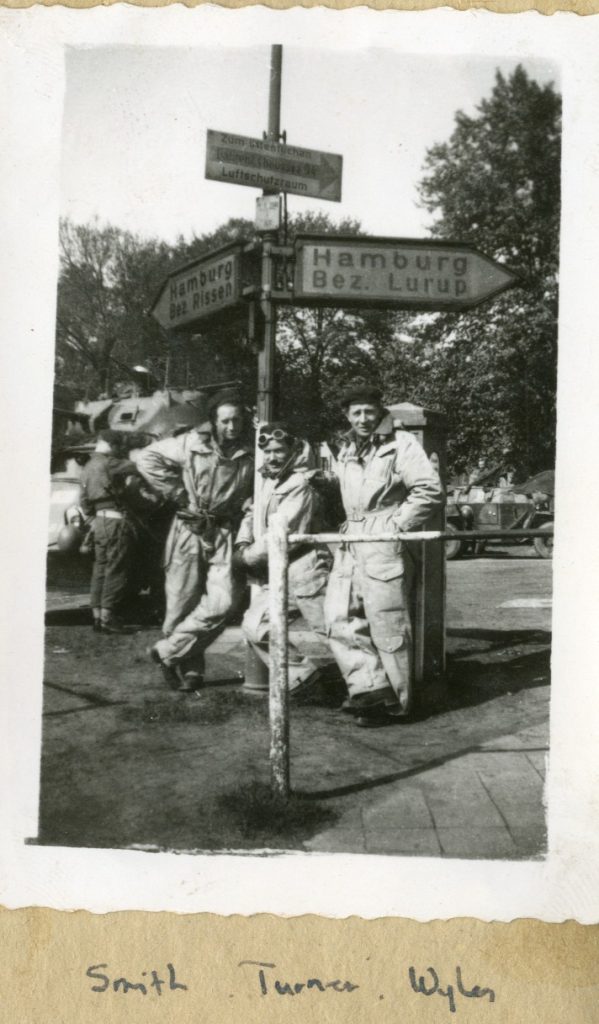
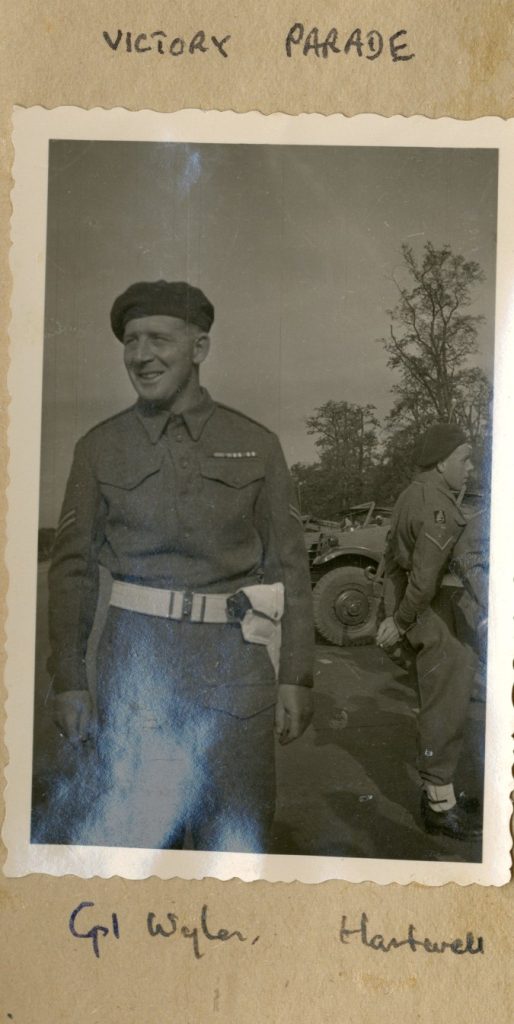
It was amongst the ruins of the Reich Chancellery that Cpl Wyles found his headed notepaper, allegedly from one of Hitler’s own desks! Who of us could resist the chance to write home on paper stolen from such a place, or indeed steal a souvenir of our own? As such, the Museum houses several other objects taken from the Reich Chancellery, including a marble tile and an embossed album, containing a Regimental scrapbook.
Little else is known of Cpl Wyles’ time with the Regiment. In January 1946 he was awarded a Commander-in-Chief’s Certificate for his service, with the journal recording:
‘We congratulate Cpl. Wyles and L/Cpl. Starling on being awarded the Commander-in-Chief’s Certificate for Gallantry. Both of these N.C.Os have served with [A] Squadron for a long time, and during the war many of us benefitted by their comradeship, which was a great help on many an unpleasant occasion.’
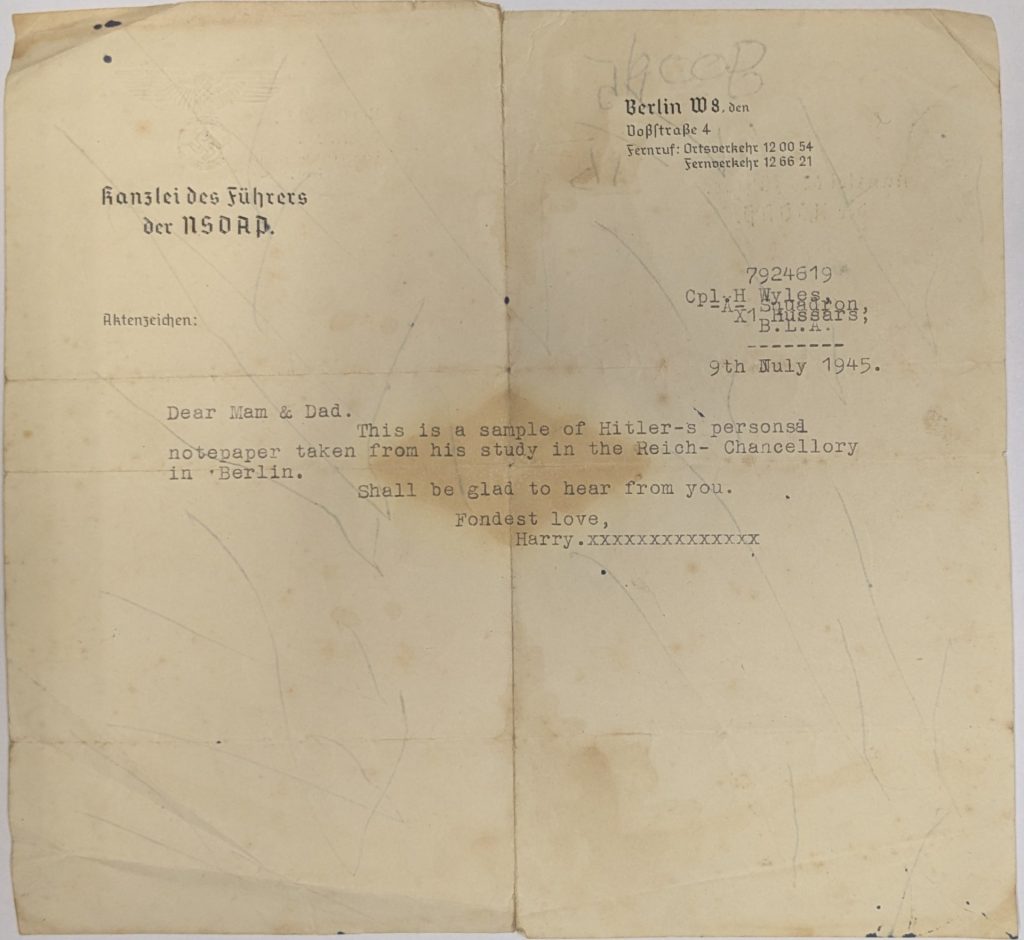
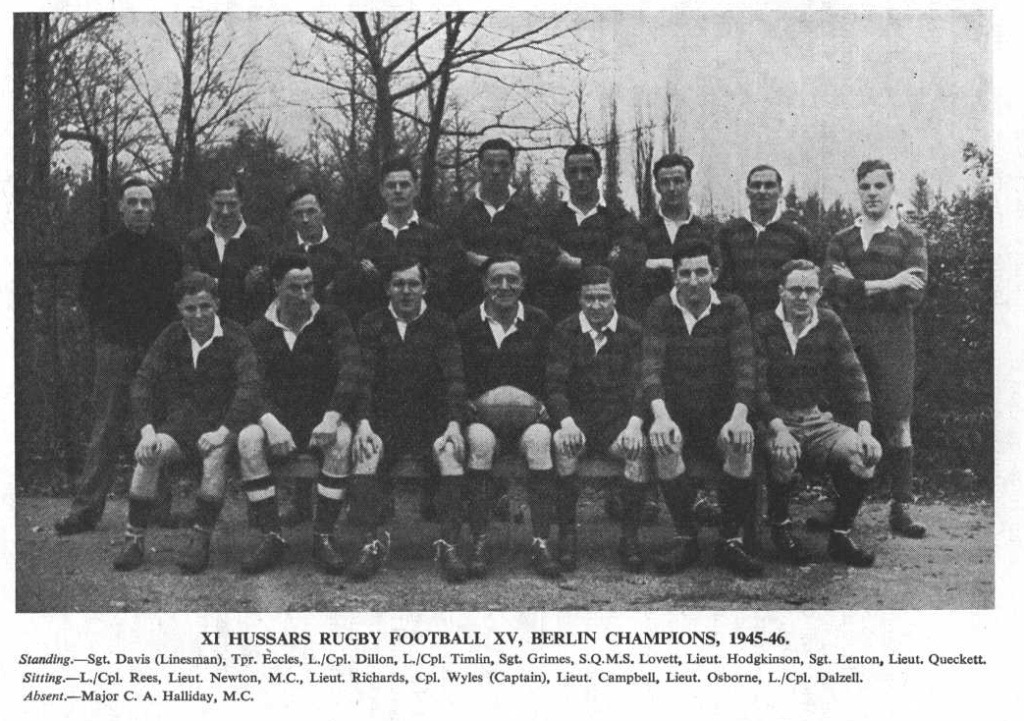
Before the war Cpl Wyles played for Abertillery RFC, making 67 appearances for Newport RFC between 1933-1936. As such he made the perfect candidate for the Regimental Rugby Team upon its resurrection in Berlin. Many a game of rugby was played in a field marked out in the grounds adjoining the Berlin Olympiastadion.
Under his captaincy, and his policy of ‘a try-in-the-first-minute’, the 11th Hussars rugby team won the Berlin Inter-Unit Regiment Competition. In only their second match on the way to the final they beat the Royal Signals team 92-0!
At the end of January 1946 Wyles was demobilised which was a great blow to the team, which went on to lose the British Army of the Rhine quarter finals.
